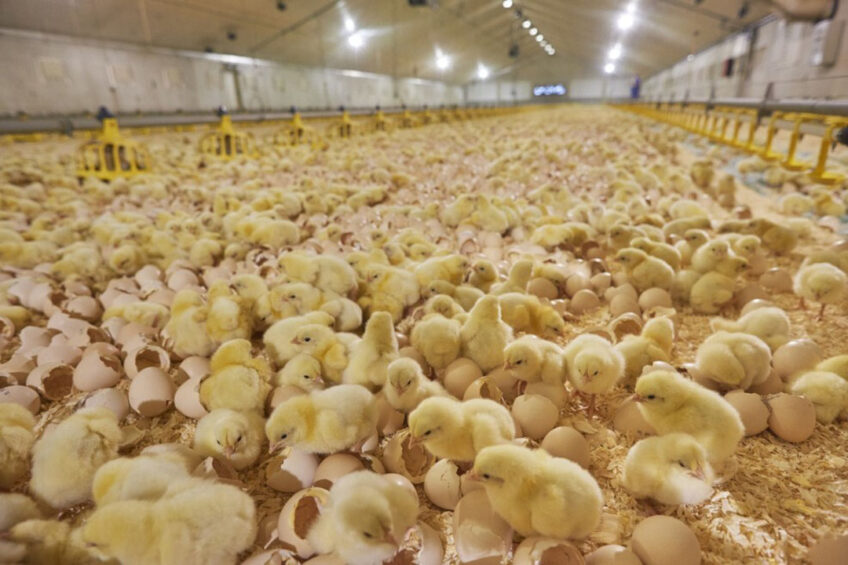Early feed access to improve poultry growth performance

Swedish research looking at early feed access in chicken starter diets found it can be used to improve growth performance in broilers. It also found, however, that algal extract supplementation did not affect growth performance or gut health.
The study evaluated early feed access and algal extract on growth performance, organ development, gut microbiota and vaccine-induced antibody responses.
Hatching concepts, such as on-farm hatching, provide an opportunity to supply newly hatched birds with optimal nutrition that supports growth and the development of a healthy gut. Brown algae contain bioactive compounds, especially laminarin and fucoidan, that may boost intestinal health and immune responses.
The study aimed to examine the effects of early access to feed and water post hatch and feed supplement with algal extract rich in laminarin from Lamarin digitata.
A total of 432 Ross 308 chicks were allotted to 36 rearing pens in a 2×3 factor design with two hatching treatments and 3 dietary treatments. During chick placement, half the pens were provided direct access to feed and water (Early), while the other half were deprived of feed and water for 38 hours (Late).
The chicks were fed 3 different starter diets until day 6:
– a wheat-soybean meal-based control diet
– a diet with low inclusion of algal extract (0.057%)
– a diet with high inclusion of algal extract (0.114%).
Feed intake and body weight (BW) were registered on a per pen basis at placement, days 1, 6, 12, 19, 26, 33 and 40. To induce antibody responses, all chicks were vaccinated against avian pneumonia on day 10. Per pen, 3 chicks were selected as focal animals and used for blood sampling on days 10 and 39. On days 6, 19 and 40, 2 birds per pen were killed and used for organ measurement and caecal digesta sampling for gut microbiota analysis using the Illumina Miseq PE250 sequencing platform.
Results
The results showed that although the algal extract did not influence gut microbiota or vaccine-induced antibody responses, they showed that during the first 38 hours, early-fed chicks consumed an average of 19.6g of feed and gained 27% in BW, while late-fed chicks lost 9.1% in BW which lowered BW and feed intake throughout the study (P<0.05).
Late chicks also had a longer relative intestine, high relative (g/kg BW) weight of gizzard and proventriculus, but a lower relative bursa weight on day 6 (P<0.05%). No effects of hatching treatment on microbiota or antibody response were detected. The microbiota was affected by age, where alpha diversity increased with age. In conclusion, the study showed that early access to feed, but not algal extract, improved growth performance throughout the 40-day growing period and stimulated early bursa development.
The research, published in the journal Animal was carried out by researchers at the Department of Animal Nutrition and Management, Swedish University of Agricultural Sciences, Uppsala; the Department of Microbiology, National Veterinary Institute, Uppsala and the Department of Marine Sciences, University of Gothenburg, Sweden.












